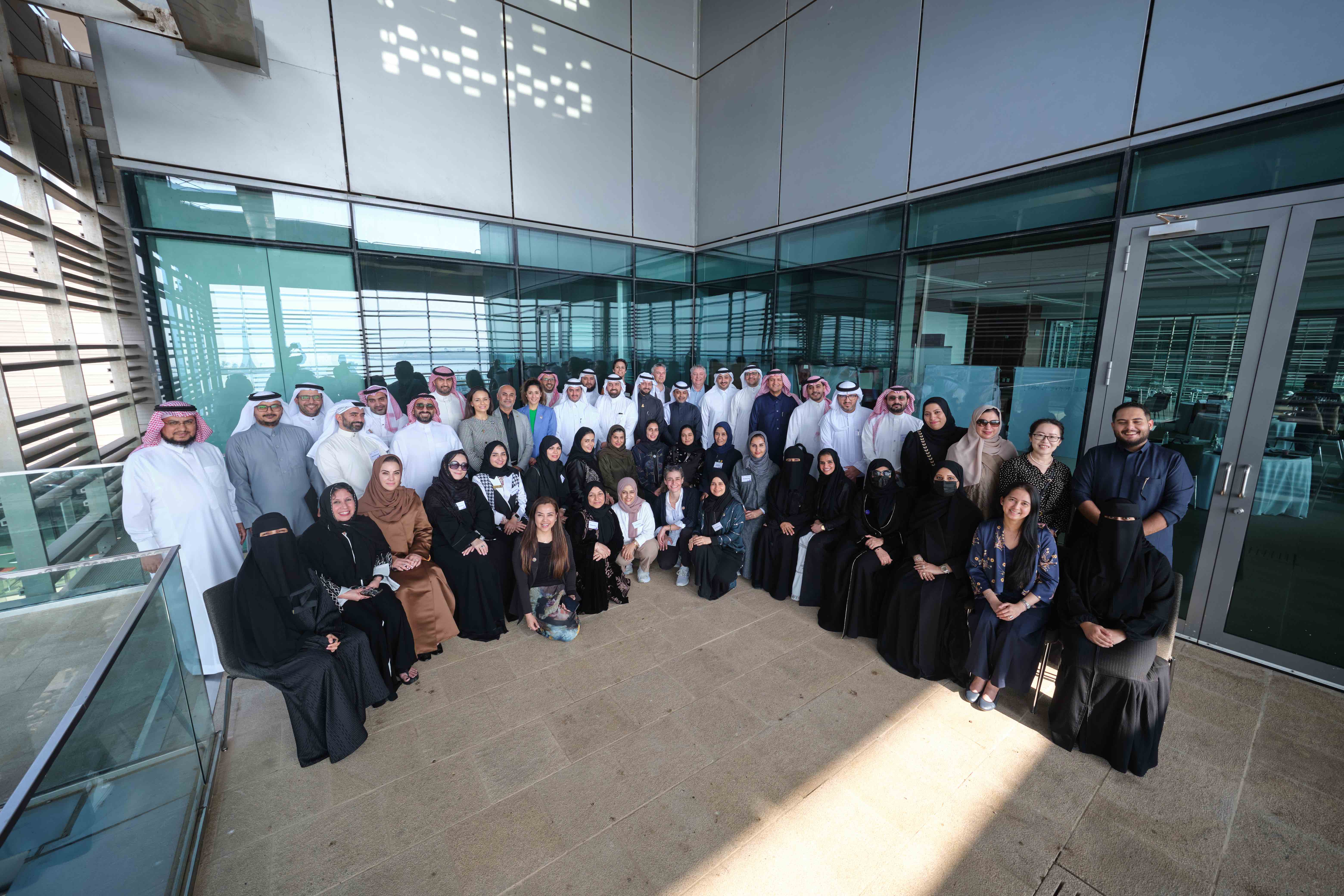Saudi Arabia’s top academic leaders converge at KAUST Saudi Leadership Institute 2024

King Abdullah University of Science and Technology (KAUST) has successfully concluded the 10th edition of its acclaimed KAUST Saudi Leadership Institute (KSLI) for academic executives.
Strategic National Advancement (SNA) brought together executive leadership and academics from leading in-Kingdom universities and the Ministry of Education (MoE) for the immersive KSLI program. Held from Feb. 10 to 15, this year's program was titled 'The Disruption Advantage; How leaders can seize the opportunity for transformational change' and aimed to provide a toolkit for effectively navigating, utilizing and sparking disruptive advantage. In turn, KSLI's distinguished tenth cohort enriched the program and its legacy through their presence, experience and expertise.
"Creating networks such as those provided by KSLI enriches the fabric of the educational landscape in the Kingdom," said Dr. Najah Ashry, KAUST vice president for Strategic National Advancement. "Each year, the talent pool at KSLI bolsters our confidence and reaffirms that we are on the right path, employing the right strategy with the right people to execute it."
KSLI adopts a holistic approach to inspire and propel its participants with engagements including academic seminars, one-on-one coaching, networking, collaborative opportunities and health and wellness sessions. Participants are hand-selected from nominations put forward by top Saudi Universities and MoE. Since its inception, KSLI boasts 650+ alumni spread across educational leadership in Saudi Arabia. This year, the program proudly adds 40 more exceptional individuals to its ranks.
Dr. Muhammed Al-Saggaf, president of King Fahd University of Petroleum and Minerals (KFUPM) - a leading nominator for the KSLP, acknowledged KAUST as a vital partner, saying, "The success and competitiveness of Saudi Arabia's academic executives is pivotal in a knowledge-based economy, particularly considering the significance of higher education in enabling the multiple transformation programs under vision 2030. The KSLI program by KAUST is a great step forward and a successful experience."
Apart from the esteemed participants, the tenth session of KSLI was further distinguished through collaboration with the Thunderbird School of Global Management's Executive Education Team. Thunderbird is particularly well-suited for the theme of disruptive advantage, as it was ranked Most Innovative School in the U.S. by the U.S. News and World Report for nine years running (2016-2024) as well as first in the U.S. and second in the world in the SDG Global Impact Rankings by Times Higher Education.
Dr. Sanjeev Khagram, director general and dean at Thunderbird, said, "We are honored to collaborate with KAUST and empower influential academic executives, strengthening their skills, networks and understanding within their organizations and on a global scale." Dr. Tom Hunsaker, associate dean at Thunderbird, lauded KSLI, adding that participants taking insights from the program back to their institutes would have a "ripple effect on the Kingdom."
During his opening remarks, Dr. Pierre Magistretti, vice president for research at KAUST, emphasized the vital role of organizational leaders as mentors. "Despite the time constraints academic leaders face," he said, "their wise counsel can profoundly impact individuals." This year, KSLI's speaker series was honored to host globally acclaimed faculty and leaders embodying the spirit of Magistretti's message. Amongst those who shared their time and wise counsel were Dr. Jürgen Schmidhuber, director of KAUST's AI Initiative, and KAUST Distinguished Research Professor William McDonough.
Dr. Auhoud Alshehail, advisor to His Excellency the Rector of King Saud University and general supervisor to His Excellency's Office, reflected, "We're living in a world that's changing so fast. We're all in our own bubbles as institutions, so it's really refreshing to look at higher education through a global lens."
Dr. Hoda AboAlsamh, director of the IAU Leadership Center, said high-ranking professionals can become knowledge complacent, but KSLI revived a sense of wonder. "I'm enjoying the opportunity - learning, networking, talking to experts, and being surrounded by other leaders."
Dr. Alaa Almasud, manager of the Tissue Biobank at PNU, said KSLI would be one of her "best experiences and best memories." She added that KSLI offered ample opportunities for interactions between "different specialties and mindsets," encouraging her to start building similar "diverse connections" at her home institute.
Dr. Fahad Alzahrani, director of the KFUPM Institute for Knowledge Exchange, summed up his experience by saying, "KSLI is a valuable opportunity, contributing not only to the growth of our institutions but also to the advancement of the Kingdom as a whole."

